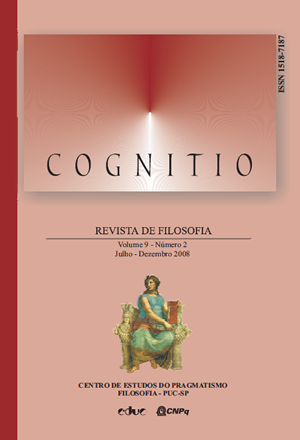Pragmatism and the Prospect of Rapprochement Within Eurocentric Philosophy
Keywords:
Pragmatism, Contemporary philosophy, Eurocentrism, NaturalismAbstract
The main currents of Eurocentric philosophy, broadly conceived: pragmatism, analytic philosophy, and continental philosophy, though each of these “movements” ranges over extremely diverse undertakings, now appear to be converging on the question of the adequacy or inadequacy of some form of naturalism. Analytic philosophy has tended to favor reductive forms of naturalism (“naturalizing,” in Quine’s and Davidson’s sense); continental philosophy tends to favor, in what I call extranaturalism, the inadequacy of any usual form of naturalism (notably, along the lines explored by Husserl and Heidegger); and pragmatism tends to favor moderate but generous forms of naturalism that admit the uniqueness of the human person. The question that concerns me here is the prospect of a rapprochement among these currents, which I take to depend on a reconsideration of the paired innovations of Kant and Hegel. In these terms, pragmatism appears to have a distinct advantage, though its own fortunes depend on its ability to coopt the distinctive work of the continentals and replacing the extreme reductive options favored by the analysts.









